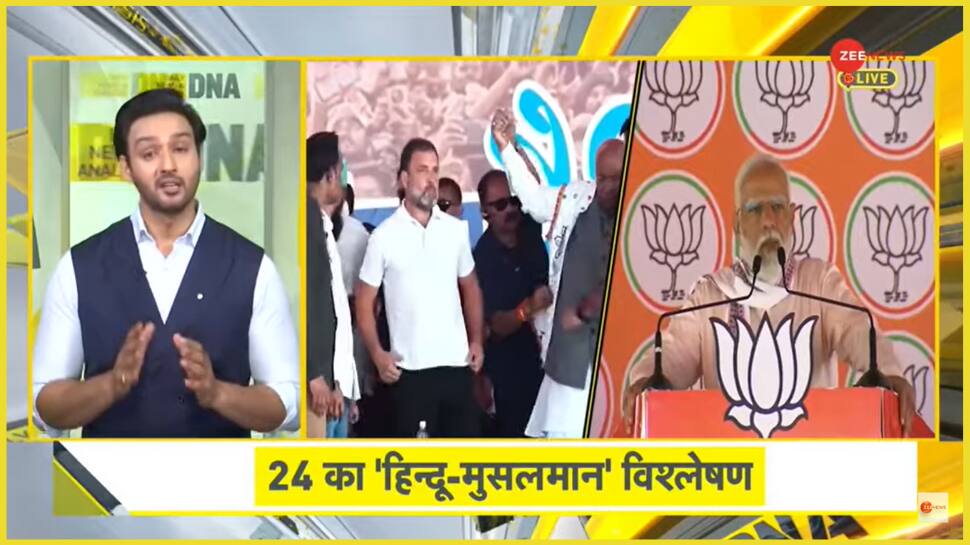New Delhi: In the Lok Sabha Elections 2024, discussions initially centred on development. However, the focus shifted to who specifically benefits from development—based on categories, religions, and castes. This transition ushered in religious issues into the campaign discourse. In Today’s DNA Zee News anchor, Sourabh Raaj Jain analysed the shifting of the focal point in the 2024 Lok Sabha election from development to religion.
The speeches in election campaigns evolved from reservation to religious reservation, and questions arose about the allocation of property among different religions. Recently, the rhetoric has escalated to a divide of eighty-twenty proportions, leading to discussions about Ghazwa-e-Hind through religious reservation.
A fundamental question arises: is the Hindu-Muslim divide limited to electoral politics, or does it have real-life implications?
Broadly, it’s evident that introducing religious elements into politics isn’t exclusive to any single party. Examination of various statements reveals that religious undertones in elections suit all parties.
This sentiment is echoed in the statement of BJP leader and Amravati candidate Navneet Rana. While campaigning in Hyderabad for BJP candidate Madhavi Lata, Rana issued a 15-second challenge to the Owaisi brothers, Asaduddin and Akbaruddin. Hyderabad has been a stronghold for the Owaisi family for four decades, with Asaduddin serving as the Lok Sabha MP for 20 years and Akbaruddin as an MLA.
Akbaruddin’s infamous “Remove the police for 15 minutes” speech from 2013 remains relevant. Rana’s challenge of 15 seconds in response sparked a retort from Asaduddin Owaisi, who extended the time to one full hour.
Madhavi Lata, the candidate Rana was supporting, acknowledged that while Rana’s words may have been inappropriate, the sentiment behind them was not. Rana defended the challenge, asserting that reducing the time frame to 15 seconds instead of 15 minutes was innocuous.
It’s worth noting that despite Akbaruddin’s speech leading to a 40-day jail stint in 2013, he was acquitted in 2022 by the Sessions Court due to incomplete evidence. However, the matter remains under scrutiny in the High Court, with accusations against the police for presenting partial evidence to shield Akbaruddin.
Amidst this, one might question why Barrister Owaisi did not mention his acquittal. Perhaps, the reawakening of an 11-year-old issue doesn’t significantly impact him.

